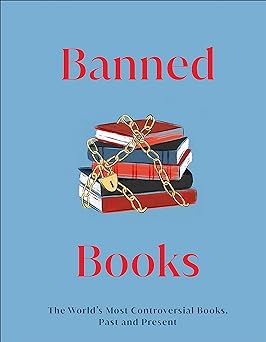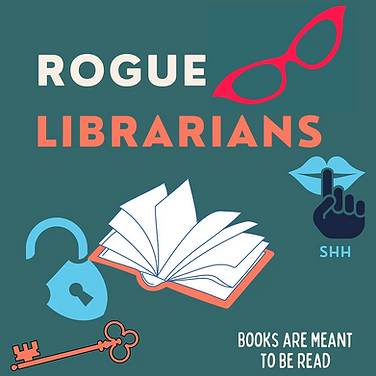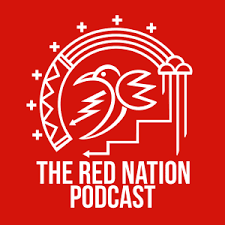Banned Books: Resources and Reflections
What follows is an ad hoc collection of reflections and resources on the topic of censorship and book banning. My book club, the Manasota Interracial Book Club has selected Banned Books by DK as the book to be read through the month of October, 2023. The book gives an extensive list of books that have been censored through the years, but no analysis of the reasons for censorship or guidelines for responding.
Because this book is fairly shallow, I’ve begun to cast about for additional information about censorship. That hunt has turned up many resources and has given me much to think about.
What I’m doing here is trying to capture some of my thoughts and provide any reader with links for further study.
Rogue Librarians Podcast
I discovered and was impressed by the podcast “Rogue Librarians.” I’ve listened to a couple of episodes and am thrilled with the amount of intelligence and compassion in people who are doing brilliant work in ordinary situations, in this case in school libraries.
The podcast consists of three librarians, Marian, Dorothy, Alanna, and and a technical partner, Lizzie, who have put together a podcast of genuine heart. It’s amazing how much wisdom people can acquire simply by working with children and reading.
I listened to several episodes of this podcast with a growing hope that my grandchildren will be guided by a media specialist, teacher, or librarian as wise and sensitive as any of these women.
Routledge Companion to Freedom of Expression and Censorship
The Routledge Companion to Freedom of Expression and Censorship: This is probably what we should be reading. Notice that it hasn’t been released.
Tuesday, 10:14 p.m.: The banning of books signals that new ideas have overwhelmed entrenched power and that it is powerless to turn them back.
PEN America
PEN America’s advocacy includes work on educational censorship press freedom and the safety of journalists, campus free speech, online harassment, artistic freedom, and support to regions of the world with challenges to freedom of expression.
September 20th 4:19 pm
DK’s Banned Books is laughably inadequate. I consists of a chronilogical collection of well-known books that have been banned. There are so many books here that I get the impression that any compelling or skilled writing is going to threaten someone in authority and they’re going to try to keep people from reading it.
There is enough information about the banning to make me want more. What lies beneath government’s and church’s anxiety over sexuality in literature? For example, Daniel Defoe a straightlaced puritan wrote a pivotal novel titled Moll Flanders. It relates the adventures of a conventionally “ruined” woman who goes from marriage to marriate, bed to bed in a minimally titulating way and then in the end repents of her misdeeds.
Many years later, Moll Flanders fell afowl of the Comstock Laws of the 19th century, which were designed to suppress the mailing of obscene materials through the mail.
There is something about non-conventional sexual practice or free-spirited sensuality that is faintly political. The idea of awarding anyone with multiple years in prison for possessing a copy of Moll Flanders or Mary Shelley’s, Frankenstein speaks profoundly to the character of oppression.
This observation goes beyond literature. The authoritarian minority in the United States is conducting a veritable inquisition against abortion. Obviously, the chief victims of these draconian laws are Black and Brown birth age women. For people in authority, especially in religion, the prospect of a traditionally subservient population having love lives and practicing forms of sensuality in private seems downright dangerous, at least to people in control.
Much of the book banning today flies under the banner of suppressing obscenity and pornography. These labels are obviously misapplied and come to be attached to thoughtful literature designed to affirm people in their sexual identities and to broaden the range of socially sanctioned sexual practice.
Sex is a factor in the dominion system that oppresses people. Religion, business, and government gravitate toward regulating who loves whom, who is able to enjoy themselves, and the process of reproduction.
(The scheduling of Banned Books to be read in October coincided with Banned Books Week (October 1-7). There were other specially designated days including Columbus Day and Indigenous Peoples Day. To top off these observances the dramatic Hamas attack on Israel and retaliation took place. The convergence of these events made for an interseting stew. I stumbled into this podcast and took the time to write out a section of the dialogue (start at 37:00) here because it spoke so deeply to the interest of our book club.
Here in the US we’re in the era of social media activists and celebrity activists Byt we don’t pay attention to grassroots organizers who want to write. But who’s going to read it? In the US we have an attitude of, “Why do we have to read? Everything is digital?” You can learn a whole history in like 7 seconds. In a way that’s an injustice to the people who are really struggling to make change. I didn’t join Red Nation until I was an adult. I was a liberal for a really long time. When I started reading for the first time; in particular I was reading people like Haunani Kay Trask and Lee Miracle. All of these profound indigenous feminists; that really shifted my whole conception of the world Ilived in. I learned to analyze the world I lived in. They actually changed the way I lived my life. I think what I’m trying to get at is that writing and reading and studying, the role of the person who aspires to write about movements should be engaged but also be engaged with the people who care about what an organization but also care..for the long term. What happens is that we’ll pay attention to the person on the megaphone, but we won’t pay attention to the person whose calling the meeting or taking notes. Those people are often erased. And their histories are erased. I think what I knew about the American Indian Movement was only the famous people. What I learned about the women of AIM was way later—Kiley Guy




